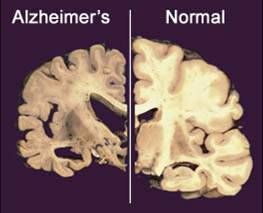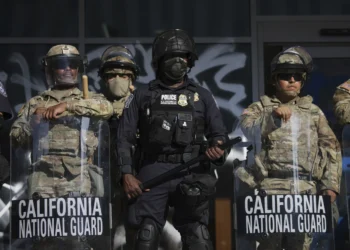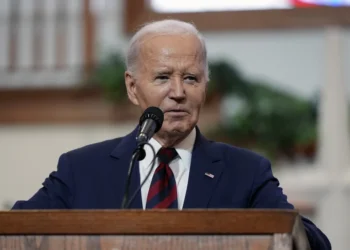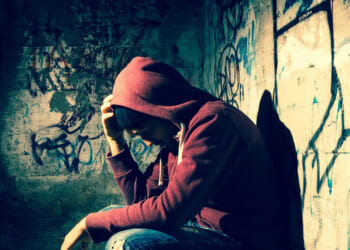For decades, Democrats have thrown us down a slippery slope on marriage, sexuality, and the sexes — but for those who said pedophilia would always be a bridge too far, well, guess again.
AI-generated child pornography (AICP) is exactly what it sounds like: sexually explicit depictions of children that, in the age of deepfakes, are virtually identical to the real thing. Yet since no children are directly harmed in its production, proponents argue it’s a safe, even ethical, way to satiate would-be pedophiles and reduce harm to children. E-girl data scientist Aella concisely laid out the argument earlier this month, in what she naively failed to realize would become her “most controversial tweet” of all time:
Child porn is created when people get paid to make child porn; the rarer you make it, the more they get paid. The best way to protect children is to kill the economic demand; flood the market with AI generated, freely accessible stuff that’s created with zero harm to kids.
In Aella’s framework, AICP becomes an ethical solution to the evil of child sexual abuse. But even if her questionable assumptions on harm reduction hold, normalizing child pornography opens the door to a new “industry” that empowers people who have little interest in protecting children.
It’s easy to see how AICP fits into the Democrat worldview. Like the left-wing approach to drug decriminalization, it all comes down to mitigating harm for vulnerable populations; pedophiles, like drug addicts, aren’t inherently bad, but are rather victims of their own inclinations. The euphemism “minor-attracted person” reframes pedophilia as an innate identity, which, like addiction, renders it to the therapeutic arms of the state. State-sanctioned injection sites to reduce street crime and overdoses find a direct corollary in AICP, which, in this theory, will prevent self-destructive pedophilic behavior and the harm it causes to children.
In a subsequent essay defending her tweet, Aella pointed to a 2010 study showing a “significant decrease in the incidence of child sex abuse” in countries where child pornography is “not illegal.” Yet the purported evidence here is almost irrelevant. There is no world in which we “flood the market” with unregulated AICP, if for no other reason than to prevent genuine material from slipping through the cracks. Rather, like Democrat experimentation with drugs and wrongly termed “gender-affirming care,” it would become a strictly regimented state project, with oversight delegated to untrustworthy actors.
Even the biggest true believers in harm reduction likely wouldn’t have the stomach to carry Aella’s plan through. If we allowed AICP to become ubiquitous, ubiquitous it would become: targeted ads, paid social media partnerships, and a casual inclusion in otherwise “vanilla” pornography. Over 80 percent of Americans believe viewing child porn should be illegal, and even if the most perverted leaders of blue America tried to realize Aella’s plan, a sharp rebuke is almost guaranteed.
Clearly, however, public backlash hasn’t stopped them in the past. Normalizing unpopular deviance just requires a subtler approach.
Any experimentation with AICP would have to be framed in manipulative moral terms, set and regulated by the good people: the “experts.” While a diagnosed “minor-attracted person” might receive controlled “treatment” for his “condition,” who’s to stop the layman pedophile from abusing an unregulated online stream, exacerbating rather than curtailing his harmful urges? In come the experts; whether it’s heroin or AICP, an innately dangerous substance can be framed as neutral or even positive if supervised by those trained to spot and prevent abuse.
Yet this empowers the very people you don’t want involved. The doctors behind pediatric transgender facilities don’t choose this particular path to fulfill their Hippocratic oath; they have an ideological commitment to the role they serve. To a WPATH doctor, every kid is a trans kid waiting to tell you who he is, while doctors who don’t believe in “gender-affirming care” simply enter another specialty. Far from empowering anti-pedophile actors, the rise of AICP would likely empower those who already operate in the field of pathologizing pedophilia.
Among the hundreds of academic articles on “minor-attracted persons” over the last decade-plus, “queer” academics like Ole Martin Moen have written at length about the “unjust” demonization of pedophiles. “We must appreciate that sexual attraction towards children is often a deep and integral part of pedophiles’ personalities,” Moen wrote, so much so that it would “be well-advised to start teaching high school students” about how to “handle their sexuality” in case “they themselves are pedophiles.” At the end of the day, “pedophilia itself, as well as pedophilic expressions and practices that do not cause harm to children, are morally alright [sic].” Child sexual abuse then depends on a creeping definition of “harm.”
Far from a random academic, Moen has a solid foothold in think tanks and government advisory councils in his native Norway. And it’s his worldview that would inevitably be empowered with an institutional stamp of approval. Not too long ago, transgender surgeries, puberty blockers, and wrong-sex hormones would have been seen as lunacy across the political spectrum, but after a decade-long march through the institutions, large swathes of the population see “gender affirmation” not only as critical, compassionate, and righteous “care,” but downright common sense.
If we accept the premise of AICP, in all likelihood, what we wind up with is a “regulated” marketplace of “ethical” AICP, where “experts” write “therapeutic” scripts to “treat” “minor-attracted persons” under the guise of “science” — all marketed, sold, and taxed to hell, of course. However, under this patina of legitimacy, what they’ll actually do is advocate for what they see as the issue of our time, the unjust persecution of pedophiles for not only natural but moral behavior. In a world where AICP is normalized as just another tool in our therapeutic aresenal, we’ll have pro-pedophile activists using a newfound institutional perch to further their cri de coeur, normalizing not just “harmless” AICP but pedophilia itself.
And if I know anything about a slippery slope, it’s that they won’t stop there. Sometimes, there’s no debate worth having. You just have to say enough.
Gage Klipper is a writer based in New York. Previously, he was the culture critic at the Daily Caller and an editor at Pirate Wires.

















